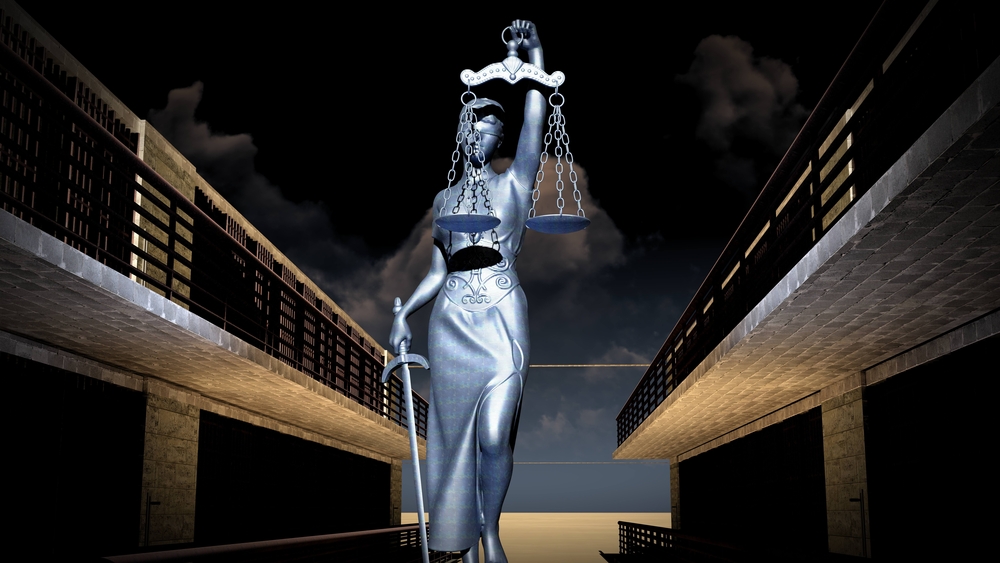A federal appeals court’s ruling in the case of Washington-area sniper Lee Boyd Malvo could speed the resentencings of people serving life-without-parole sentences for crimes committed as teens in Virginia and Maryland.
Malvo was 17 when he was arrested for the string of 2002 killings that terrorized the U.S. capital and its suburbs, leaving 10 dead. He has said he was brainwashed by his accomplice, John Allen Muhammad, who claimed Malvo was his son.
“To be clear, the crimes committed by Malvo and John Muhammad were the most heinous, random acts of premeditated violence conceivable,” Circuit Judge Paul Niemeyer wrote for a three-judge panel of the 4th U.S. Circuit Court of Appeals. But Malvo “now has the retroactive benefit of new constitutional rules that treat juveniles differently for sentencing,” and should get a new hearing.

Heather Renwick
And since the circuit covers Maryland, Virginia, West Virginia and the Carolinas, the ruling could cover at least 25 other prisoners, said Heather Renwick, legal director of the Campaign for the Fair Sentencing of Youth.
“It will impact individuals certainly in Virginia as well as Maryland,” Renwick said. West Virginia has changed its law to make all those who received life sentences as juveniles eligible for parole after serving 15 years, while North and South Carolina “have been moving through their resentencing process slowly but surely.”
Malvo is serving life without parole in connection with four shootings in Virginia, three of them fatal. A federal district judge ruled last year that Malvo should get a new hearing under Miller v. Alabama, the 2012 Supreme Court decision that struck down mandatory life-without-parole terms for defendants under 18; and its 2016 follow-up, Montgomery v. Louisiana, which made the Miller decision retroactive.
Can earlier court proceedings count as resentencing?
Miller v. Alabama didn’t eliminate life without parole for juvenile offenders completely, but it barred its application without a hearing before a judge, who would be required to weigh mitigating factors before passing sentence. Judges must “take into account how children are different, and how those differences counsel against irrevocably sentencing them to a lifetime in prison,” Justice Elena Kagan wrote. And the justices made clear they expected the punishment to be “uncommon.”
Courts have found that juveniles “do not have a fully formed character and a fully developed sense of responsibility,” are more susceptible to outside influence but also have more capability to change, Thursday’s decision notes.
The ruling may clear up questions in Virginia and some other states about whether earlier court proceedings — such as plea deals, or capital trials in which a defendant can present mitigating circumstance to avoid a death sentence — mean a life term can’t count as an automatic sentence that would be overturned by the Miller decision. It found a Miller-mandated resentencing “is a very specific evidentiary presentation” that requires a judge “to answer some specific questions,” said Marsha Levick, deputy director of the Juvenile Law Center in Philadelphia.

Juvenile Law Center
Marsha Levick
“The determination that the sentencer has to make post-Miller and Montgomery, about whether this particular juvenile offender fits that category of permanently incorrigible or irretrievably depraved, is a distinct finding that can’t be kind of massaged out of a determination about whether someone gets the death penalty or not,” Levick said.
Virginia authorities have argued that since state judges have the power to suspend a sentence, Malvo’s life-without term wasn’t automatic, and the sentencing process gave judges in the two proceedings against him a chance to ponder his punishment. But the 4th Circuit found judges effectively had no other option.
Appeal undecided
“The Commonwealth of Virginia understandably sought the harshest penalties then available under the law,” Niemeyer wrote, and the state’s arguments “are not without substantial force.” But since Miller and Montgomery, judges now have to decide whether Malvo and other juvenile lifers are “permanently incorrigible” or whether his crimes “reflect the transient immaturity of youth.”
Prosecutors haven’t decided whether to appeal, either to the full 4th Circuit or the U.S. Supreme Court, said Charlotte P.L. Gomer, a spokeswoman for the Virginia attorney general’s office.
“We are going to review the decision closely and decide how best to proceed in a way that ensures this convicted mass murderer faces justice for his heinous crimes,” Gomer said.
The ruling does not cover the six life sentences applied to Malvo in Maryland, where he pleaded guilty to a half-dozen killings. A state judge there upheld those sentences in August.
Malvo and Muhammad cruised the Washington area for several weeks in a car they turned into a rolling gun platform, firing through a hole in the trunk at people in parking lots, at gas stations and on sidewalks. The killings led to a massive manhunt during which the perpetrators taunted police with notes and phone calls before their arrest at a Maryland rest stop.
“We make this ruling not with any satisfaction but to sustain the law,” Niemeyer wrote. “As for Malvo, who knows but God how he will bear the future.”
In a 2012 interview with The Washington Post, Malvo called himself “a monster” and “a ghoul.” Virginia authorities put Muhammad to death in 2009.
“I think the 4th Circuit was right in looking to the law and not to the facts of the individual case,” Renwick said. “I think the U.S. Supreme Court was clear that all children are capable of positive growth and change, and that before a child can be sentenced to a lifetime in prison, a sentencing judge needs to take into account the totality of that child’s lived experience.”
Hello. We have a small favor to ask. Advertising revenues across the media are falling fast. You can see why we need to ask for your help. Our independent journalism on the juvenile justice system takes a lot of time, money and hard work to produce. But we believe it’s crucial — and we think you agree.
If everyone who reads our reporting helps to pay for it, our future would be much more secure. Every bit helps.
Thanks for listening.
